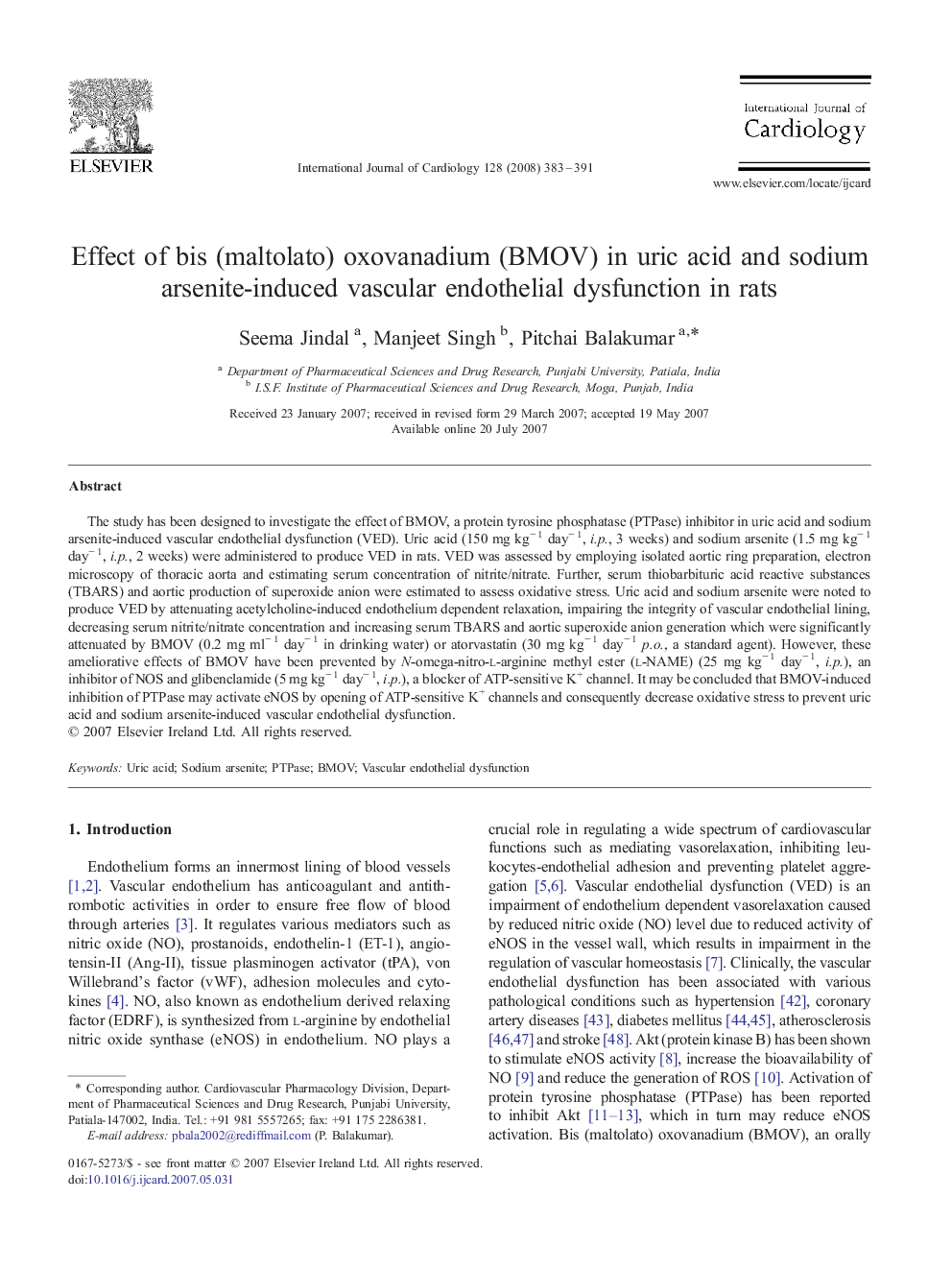| Article ID | Journal | Published Year | Pages | File Type |
|---|---|---|---|---|
| 2934111 | International Journal of Cardiology | 2008 | 9 Pages |
The study has been designed to investigate the effect of BMOV, a protein tyrosine phosphatase (PTPase) inhibitor in uric acid and sodium arsenite-induced vascular endothelial dysfunction (VED). Uric acid (150 mg kg− 1 day− 1, i.p., 3 weeks) and sodium arsenite (1.5 mg kg− 1 day− 1, i.p., 2 weeks) were administered to produce VED in rats. VED was assessed by employing isolated aortic ring preparation, electron microscopy of thoracic aorta and estimating serum concentration of nitrite/nitrate. Further, serum thiobarbituric acid reactive substances (TBARS) and aortic production of superoxide anion were estimated to assess oxidative stress. Uric acid and sodium arsenite were noted to produce VED by attenuating acetylcholine-induced endothelium dependent relaxation, impairing the integrity of vascular endothelial lining, decreasing serum nitrite/nitrate concentration and increasing serum TBARS and aortic superoxide anion generation which were significantly attenuated by BMOV (0.2 mg ml− 1 day− 1 in drinking water) or atorvastatin (30 mg kg− 1 day− 1p.o., a standard agent). However, these ameliorative effects of BMOV have been prevented by N-omega-nitro-l-arginine methyl ester (l-NAME) (25 mg kg− 1 day− 1, i.p.), an inhibitor of NOS and glibenclamide (5 mg kg− 1 day− 1, i.p.), a blocker of ATP-sensitive K+ channel. It may be concluded that BMOV-induced inhibition of PTPase may activate eNOS by opening of ATP-sensitive K+ channels and consequently decrease oxidative stress to prevent uric acid and sodium arsenite-induced vascular endothelial dysfunction.
